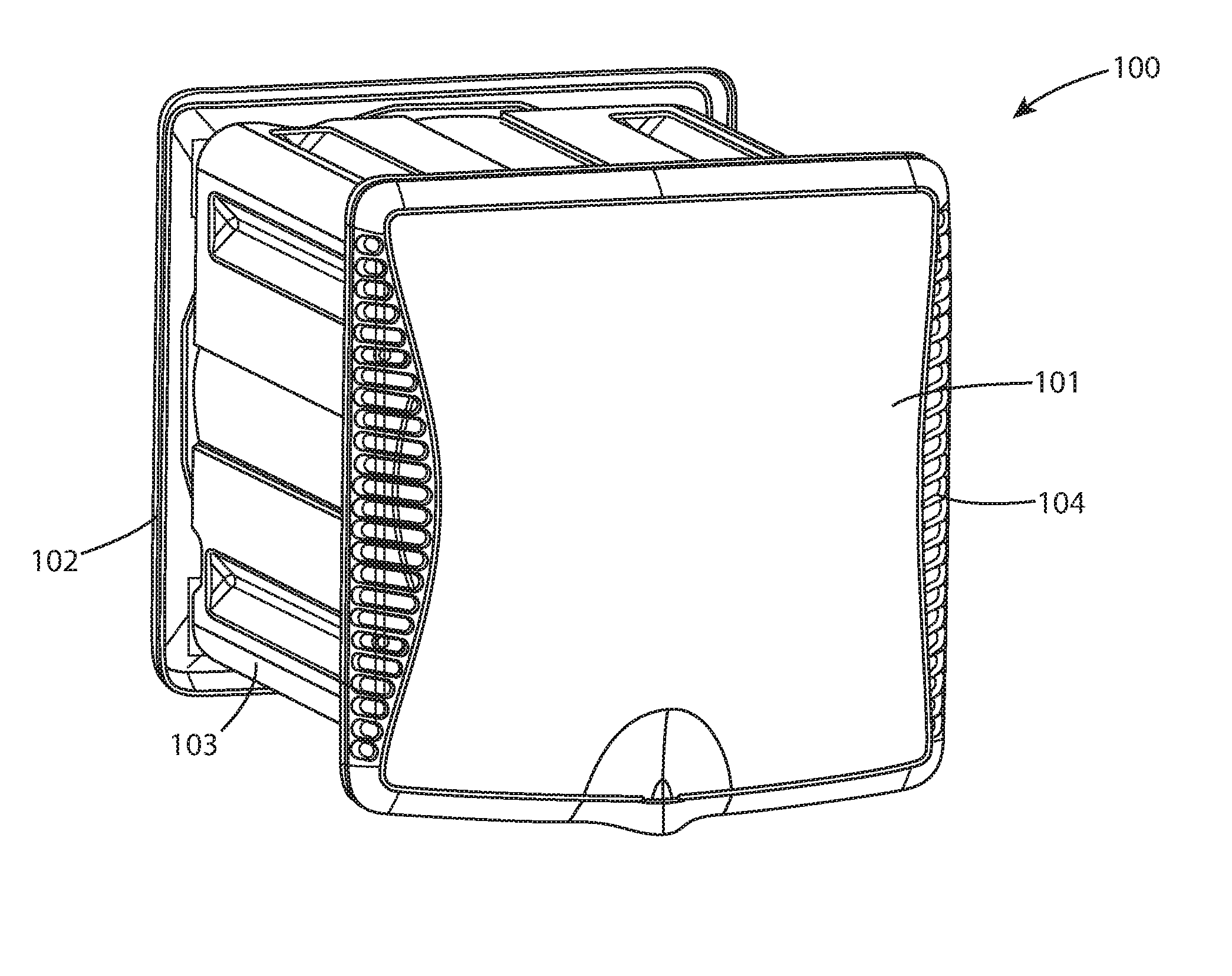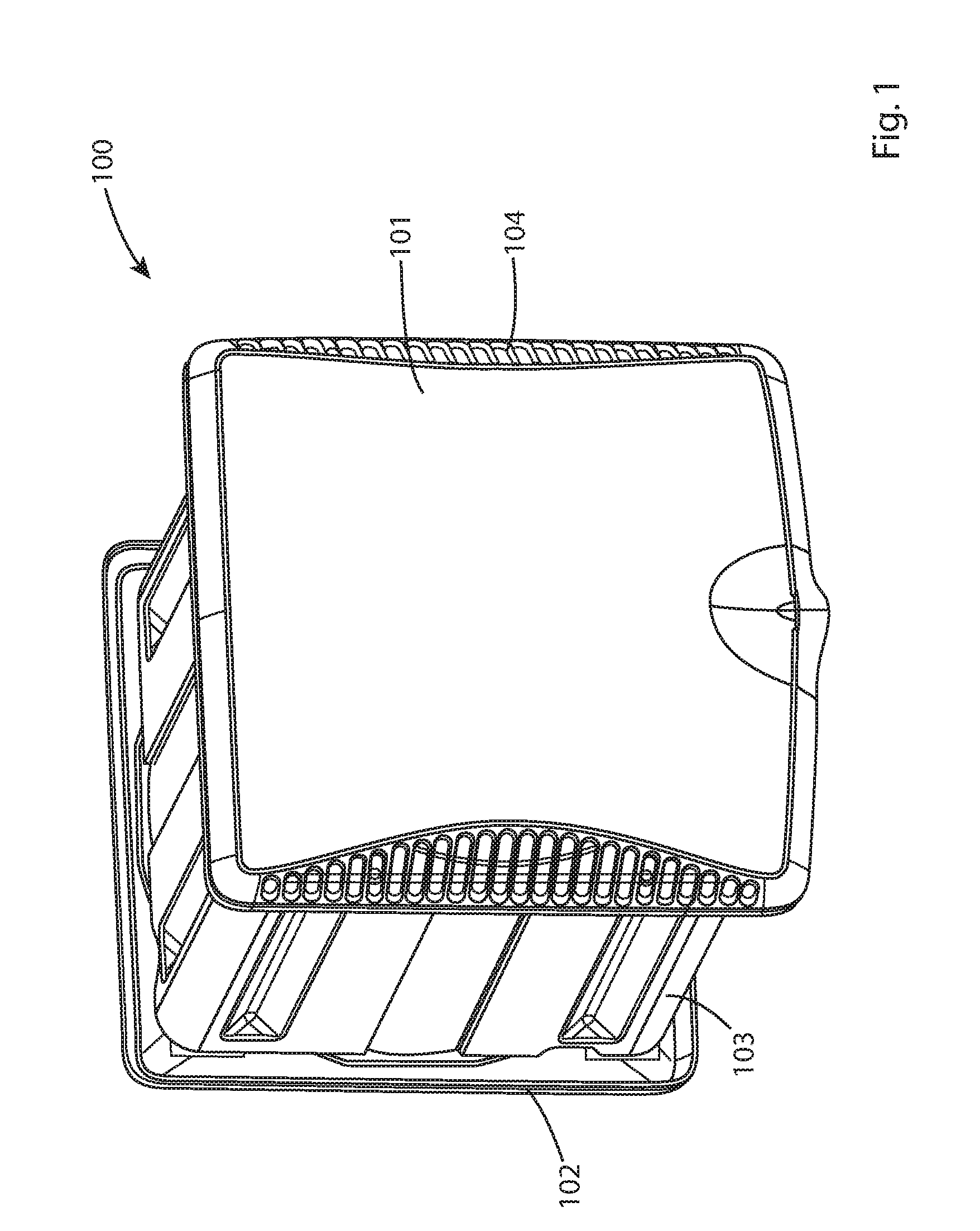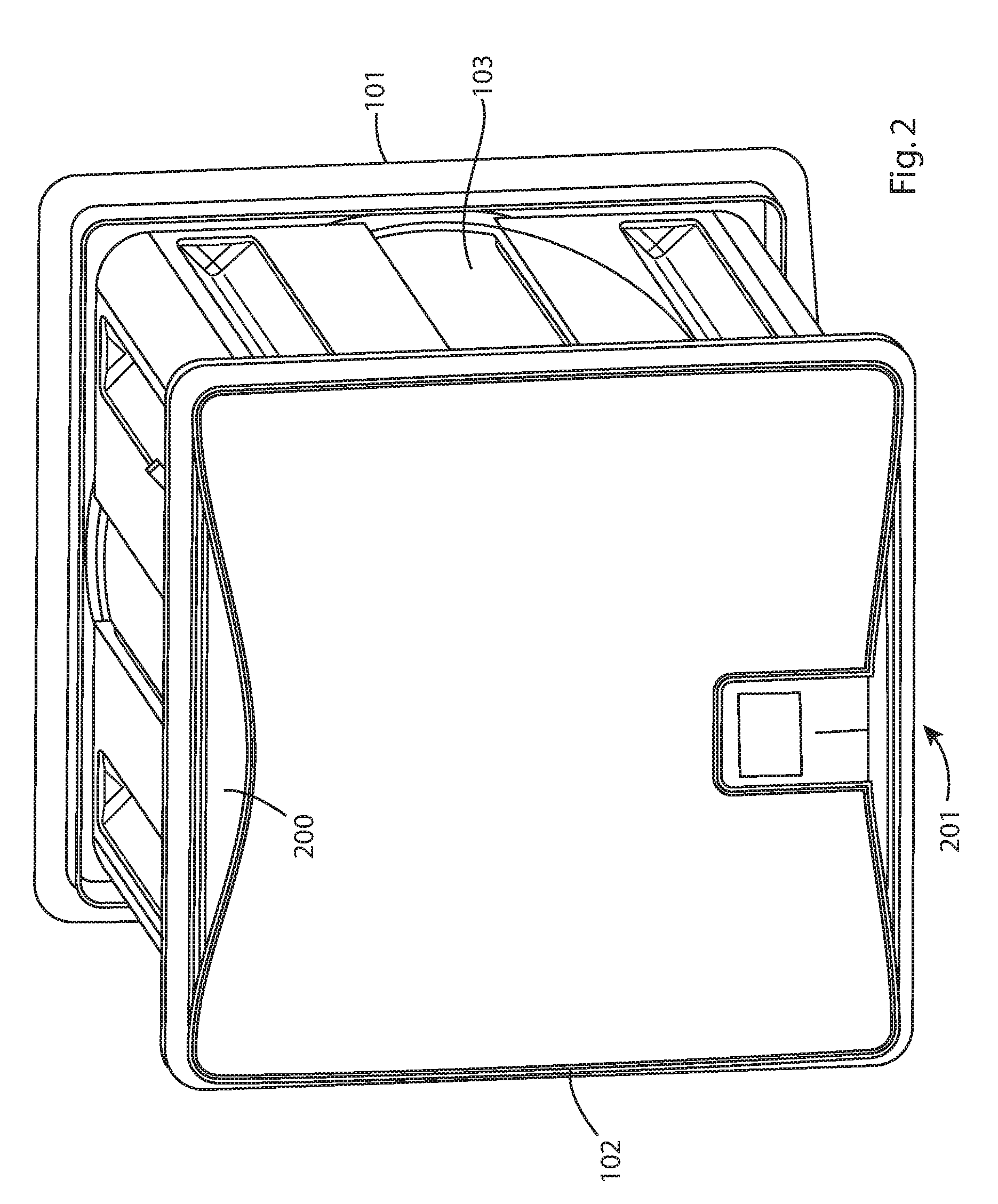Building ventilator
a ventilator and building technology, applied in ventilation systems, domestic cooling apparatuses, heating types, etc., can solve the problems of affecting the efficiency of thermal energy transfer, affecting the safety of electronics equipment, and international legislation imposing emission limitations and energy efficiency requirements, so as to achieve maximum thermal energy transfer efficiency
- Summary
- Abstract
- Description
- Claims
- Application Information
AI Technical Summary
Benefits of technology
Problems solved by technology
Method used
Image
Examples
Embodiment Construction
[0032]Referring to FIGS. 1 and 2, a building ventilator 100 comprises an external cover plate 101 for positioning at an external region of a building and an internal cover plate 102 for mounting at the building interior. A main body 103 extends between the external and internal plates 101, 102 such that body 103 and plates 101, 102 collectively define a housing mountable at an aperture in a building wall. Ventilator 100 is configured to allow a first air flow stream to flow from an external region of the building to the building interior in addition to a second counter air flow stream from the building interior to the building exterior. External plate 101 comprises a plurality of vent apertures 104 to allow the supply flow of air from the building external environment into the ventilator 100 and the building interior in addition to providing the exhaust of the extraction flow of air from the building interior to exterior. Cover plate 101 is removably secured to main body 103 via one...
PUM
 Login to View More
Login to View More Abstract
Description
Claims
Application Information
 Login to View More
Login to View More - R&D
- Intellectual Property
- Life Sciences
- Materials
- Tech Scout
- Unparalleled Data Quality
- Higher Quality Content
- 60% Fewer Hallucinations
Browse by: Latest US Patents, China's latest patents, Technical Efficacy Thesaurus, Application Domain, Technology Topic, Popular Technical Reports.
© 2025 PatSnap. All rights reserved.Legal|Privacy policy|Modern Slavery Act Transparency Statement|Sitemap|About US| Contact US: help@patsnap.com



